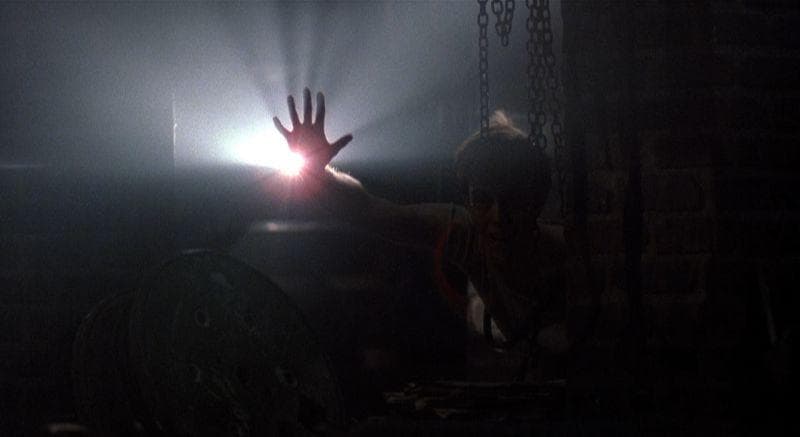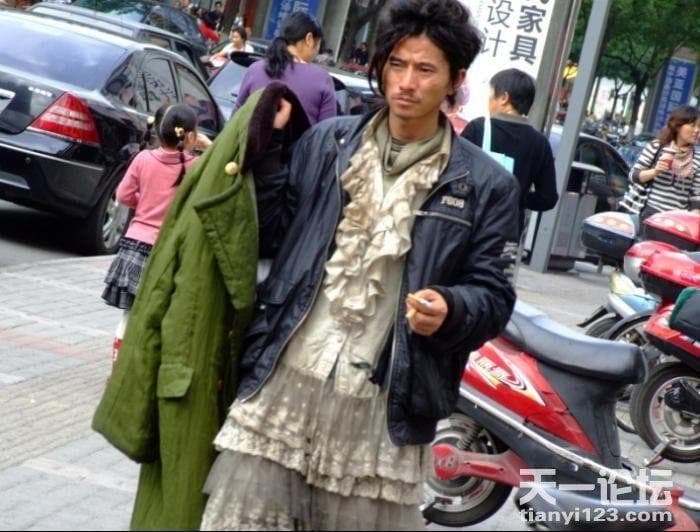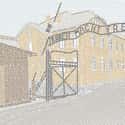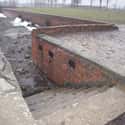-
(#17) Irene Fogel Weiss Recalls Her Experience From Arriving At Auschwitz 1944 To Being Abandoned In Central Germany When The Soviets Invaded
Irene Fogel Weiss was born in Bótrágy, Czechoslovakia (now Batrad, Ukraine) in 1930. She lived with three generations of her family in a small farming community. When Czechoslovakia fell apart, Bótrágy became part of Hungary, which was aligned with the Nazis.
The Weiss family, along with the other Jews in the area, lost its civil rights over night; Irene's father's business was taken from him and given to a gentile. In 1944, the family was told it was being sent to a camp and could only bring a single suitcase. After a night of trying to fit its most valuable possessions in that suitcase, the Weiss family boarded a train. Irene recalls:
My father surveyed the scene from the train and could see prisoners, uniforms and barracks so we immediately thought it was a work camp, and that was reassuring - if we can work, it can’t be such a dreadful place. We had heard about the stories in Poland of lots of mass shootings of Jews or people being taken into the forest and shot, so it was a relief to see out the window that there was actually a system. Even though we were victims of discrimination at that stage that’s all it was, as we had no clue then that this was a very carefully orchestrated plan of genocide. We could not have imagined that they would kill little children, until we realized that killing children was their primary goal to prevent any new generations. Because desperate people will always look to find some sign of hope, we thought to ourselves even if we have to work, at least we’ll see each other occasionally...
When we arrived it was, as I later found out, the usual story, though not to us at the time. Our family was torn apart on the platform on arriving. My sister, Serena, was chosen for slave labor. My mother and the younger children were sent off to one side and my father and 16-year-old brother to the other side. I held tightly on to the hand of my 12-year-old sister and for an instant I was mistaken for being older than I was, probably because I was wearing a headscarf that my mother had given me...
The reality of where we were, struck home fairly quickly. I was stationed near crematorium number four, and we witnessed the columns of unsuspecting women and children entering the gate of the crematorium; they would have been dead within half an hour. When the Hungarian Jews arrived they had the gas chambers going day and night. How can you wrap your imagination round that? I still can’t.
I was with my older sister Serena and we were sent to be forced laborers together in the Birkenau section of Auschwitz. Many times we were threatened with separation but somehow we managed to stay together. Later on, to our great relief we ran into my mother’s two younger sisters, our aunts Rose and Piri, who were in their early 20s. It was like finding our parents. They were such a huge moral and emotional support for us.
On about 17 January or 18 January 1945, the SS dragged thousands of us out of the camp to walk to Ravensbrück concentration camp deep into central Germany. I don’t really know why. We were in terrible straits with no proper clothes, nothing suitable for marching through the snow. It was as if the cruelty would never end. If anyone sat down out of exhaustion, they were shot. Later we were transported yet again, and my aunt Piri became ill and was killed.
As the Soviets approached, the SS left and I, Serena and Rose took shelter in an empty house nearby. The Russians came but for some reason left again immediately, so we were left to fend for ourselves.
-

(#13) Nazis Offered Internees Easy Jobs To Grant False Hope Before Murdering Them While Laughing
Premsyl Dobias was a member of the Czech Resistance who was arrested and sent to Mauthausen. He survived, emigrated to Great Britain, and subsequently related his experiences there to the British Imperial War Museum's digital archive.
One story is particularly disturbing:
The SS told us in German that they needed some prisoners who knew... who were from the farm, who knew how to feed pigs, and they would then come every day from the camp direct to that farm to look after the pigs. Obviously, everybody wanted to get away from the hard work in the camp and there were - all of them were volunteers.
The SS told us he had to have only those who were from a farm and who knew... who spoke German. That eliminated a few Spaniards who were in the group, but we were mostly Czechs, and even some Czechs didn’t know German. So finally the SS guard selected about, oh, 20 prisoners, lined them up, and I overheard the other one telling him: "Du hast zu viele" - you have too many.
So he started to push back a few, he pushed back two Spaniards, then he came to me, he pushed me back, and I was hoping so much to be able to be working on a farm, I was so hungry I hoped that I could actually eat with the pigs. So I came forward and in German, at attention, I told him that I was born on a farm and all I did all my life was feeding pigs - of course it was not true. But he very cruelly kicked me, I still have the mark on my leg, and pushed me back.
When he had finally selected about a dozen, I believe dozen to fifteen, he told them: "turn right, without step walk to that farm." And both of them remained behind the group which was marching very happily to the farm. That part of the camp was separated by guards and the guards had machine-guns to guard the outlines of the camp. We were very upset that we were left behind, and looked with envy at those who were marching to that farm.
But suddenly we heard machine-gun shooting from two sides and with horror we noticed that all the prisoners who were marching to that farm crossed the so-called border and were gunned down dead. I could have been one of them. Then the SS turned back, laughingly came back to our Kommando, we again stood at attention and one of them laughingly said "who else knows how to feed pigs?"
That is an experience which will haunt me all my life.
It’s a tremendous nightmare, to such an extent, that I could have never believed that a nation, civilized nation, which gave the world musicians, poets, experts in every field of science, how they could have been fooled by a maniac like Hitler is something which I will never understand.
-
(#16) As The Russians Closed In, The Nazis Forwarded Mail From Auschwitz To Other Camps
Alec Ossowski was sent to Auschwitz in August 1943 for Resistance activity. A non-Jew, he was not subject to selection, and was imprisoned in Auschwitz I, the forced labor camp. His treatment was harsh, but not as brutal as the treatment meted out to Jews in the extermination camp, Auschwitz-Birkenau. Alec was sent to Buchenwald when the Germans began evacuating prisoners to the West. There, he received a letter that was mailed to him at Auschwitz:
They evacuate us, a letter comes for me to Auschwitz. The bloody Russians are coming, but no, the German postal service cross out Auschwitz and send the letter on to me in Buchenwald. Can you imagine that? I had a new number, so they even have to work out what my number had been changed to in order to send it on to me. Strange nation.
Alec met his eventual wife Maria in a transit camp in the British sector of Germany. From there, they emigrated to Great Britain and opened a successful antique business that their sons continued to operate.
-
(#2) The Initial Selection Process At Auschwitz: Either The Gas Chamber Or Slavery
Jacki Handali and Rita Weiss survived transport and imprisonment in Auschwitz. Their selection experiences were similar; each describes a quick, methodical process designed to create as much compliance as possible. Deportees were forcibly removed from freight cars, told to leave their luggage behind, and quickly separated by sex.
SS doctors had the groups form one line each and began separating the lines by motioning individuals to the left or right. Left meant death in the gas chamber, right meant assignment to a work detail in the camp. Until 1944, when massive transports were processed on a 24-hour basis, trains would typically be emptied in the middle of the night or early morning, the timing meant to disorient victims as much as possible.
Resistance or questioning of authority was met with assaults with whips, rifle butts, and dogs. Children and relatives were forcibly and quickly separated, frequently with families unaware of what had happened to their loved ones until much later. A woman who refused to give her baby to a camp guard was sent into the gas chamber with her child in her arms.
-
(#4) Zyklon B Took 10 To 12 Minutes To Do Its Job, During Which Nazis Stood Around Waiting
The Sonderkommando were present at all times during the gassing process, frequently conversing with the victims in their native languages. Shlomo Venezia described what unfolded once the victims undressed and were bolted into the chamber behind a hermetically sealed door:
Once they had taken off their clothes, the women went into the gas chamber and waited, thinking that they were in a shower, with the shower heads hanging over them. They couldn’t know where they really were. A woman would sometimes be seized by doubt when no water came out and went to see one of the two Germans outside the door. She was immediately beaten and forced to go back in; that took away any desire she might have to ask questions.
Then the men, too, were finally pushed into the gas chamber, the Germans thought that if they made thirty or so strong men go in last, they would be able, with their force, to push the others right in. And indeed, herded by the rain of blows as if they were so many animals, their only option was to push hard to get into the room to avoid the beating.
That’s why I think that many of them were dead or dying even before the gas was released. The German whose job it was to control the whole process often enjoyed making these people, who were about to die, suffer a bit more. While waiting for the arrival of the SS man who was going to release the gas, he amused himself by switching the light on and off to frighten them a little bit more.
When he switched off the light, you could hear a different sound emerging from the gas chamber; the people seemed to be suffocating with anguish, they’d realized they were going to die. Then he’d switch the light back on and you heard a sort of sigh of relief, as if the people thought the operation had been canceled.
Then, finally, the German bringing the gas would arrive, it took two prisoners from the Sonderkommando to help him lift up the external trapdoor, above the gas chamber, then he introduced Zyklon B through the opening. The lid was made of very heavy cement. The German would never have bothered to lift it up himself, as it needed two of us.
Sometimes, it was me, sometimes others. I’ve never said this before, since it’s painful to admit that we had to lift the lid and put it back, once the gas had been introduced. But that’s how it was.
Once the gas had been thrown in, it lasted about ten to twelve minutes, then finally you couldn’t hear anything, not a living soul. A German came to check that everyone was really dead by looking through a peephole placed in the thick door - it had iron bars on the inside to prevent the victims from trying to smash the glass.
-

(#8) Alan Zimm Witnessed The Hanging Of 200 People At The Dora-Mittelbau Camp
In 1945, Polish Jew Alan Zimm was interned at the Dora-Mittelbau camp, where prisoners were forced to build munitions for the failing Nazi war effort. He describes the hanging of an entire factory's worth of prisoners after a machine needed to make rockets was sabotaged:
Beginning of March of '45, somebody sabotaged a part in the factory there. Not in our group. In another group. They destroyed a part of the... of a machine. Without the machine they couldn't finish the rocket. So they... without the part the rocket was unfinished. There was no way they could finish it.
What they did, they took 2,000 people from that compartment, from that group. And... put gallows in the middle of the factory, in the tunnel and hanged every one of them. They hanged them in pairs, the two. And everybody working in that factory, had to go into the tunnel, line up, and walk through underneath the gallows where the... those 200 people were hanging and come back to our work. They say, "See what's going to happen if you do the same thing what they did? You will hang."
New Random Displays Display All By Ranking
About This Tool
Our data comes from Ranker, If you want to participate in the ranking of items displayed on this page, please click here.














